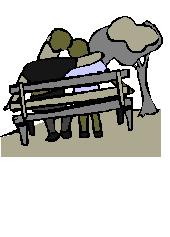Central Sensitization & Chronic Pain
Reference:Butler DS 2000 The Sensitive Nervous System, 1st Edn. Noigroup Publications, Adelaide, Australia
Central sensitization refers to the phenomenon where there is greater sensitivity of the central nervous system (CNS) to stimuli.
Central sensitization may be suspected if:
- Symptoms are not localized to a structure or do not follow an anatomical referral pattern
- Stimulus intensity and pain sensation are NOT reasonably related. (Patient may say, ?The pain has a mind of its own!?)
- Pain persists well beyond the tissue healing phase, even when the patient has no occupational provocation, disease or any other reason for the maintenance of pain
- Response to treatment or other stimuli are unpredictable. (Treatment may help one day and the same treatment may worsen symptoms on another day.)
- Symptoms may be associated with anxiety and depression
- Symptoms may be associated with thoughts, feelings, deeds of others, memories and environmental changes
Clinical Relevance: Central sensitization may provide an explanation for syndromes such as ?chronic low back pain?, ?chronic cervical pain post whiplash injuries? and ?fibromyalgia?.
If the next patient you assess, totally confuses you by their presentation?consider the possibility of ?central sensitization?.
Although I wish I did, I don?t have the ?cure? for chronic pain and central sensitization. I do however know that individuals with pain primarily related to central sensitization, need to be educated on the concept of ?hurt versus harm? .
They often need to be re-assured that even if certain activities or movements hurt, they are not causing harm to their body.The Physical Therapist must have the skills to re- assure, motivate and support the patient in maximizing their function through goal setting and a progressive conditioning program that promotes normal functional movements.
Posted on: December 05, 2002
Categories: Fascinating Pain Studies


